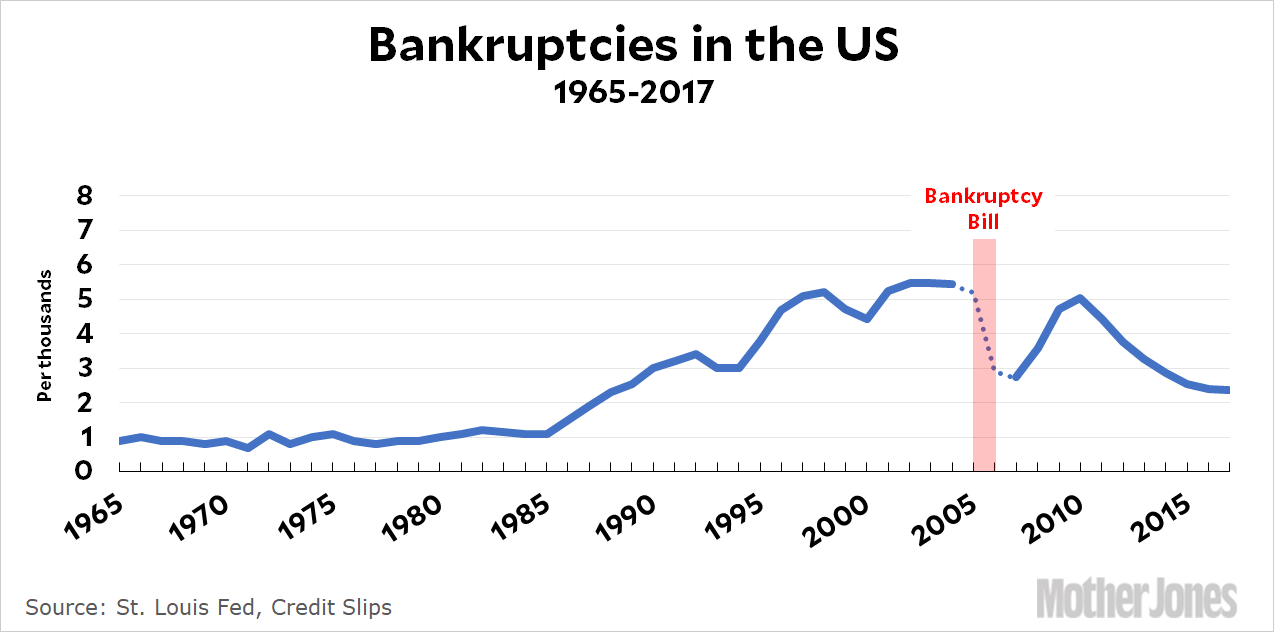In the previous post I mentioned that I was reading Elizabeth Warren’s The Two-Income Trap, which makes the point that two-earner families are unusually vulnerable to economic setbacks. Back when dinosaurs ruled the earth, if dad got laid off and money was tight, mom could temporarily pitch in by taking in laundry or whatnot. But if both parents work— and the family already spends its entire income because they scrimped to buy a nice house in a neighborhood with good schools—there’s no fallback. A few months off work spells disaster. A few months more and it’s a trip to bankruptcy court.
I will likely have something non-obvious to say about this in a little while, but for now I just wanted to take a look at personal bankruptcy filing over the past few decades:

As you can see, personal bankruptcies started climbing steeply during the Reagan era, peaking around 2000. In 2005, caught up in the notion that personal bankruptcies were driven by profligate spenders who abused the system, Congress passed a law that tightened bankruptcy requirements. Nobody was actually all that keen on the bill except for the credit card companies, which wanted to force more people into a version of bankruptcy that required them to continue making their monthly payments.
It was, pretty obviously, a horrible bill that benefited no one except big banks, but it passed in a Republican Congress anyway. Elizabeth Warren fought hard to stop it, but in the end both Hillary Clinton and Joe Biden voted for it. You may recall that this briefly became a thing in the 2016 race, but it hasn’t yet in 2020. I guess Warren is holding her fire for now.
Anyway, the immediate consequence of the bill was a steep drop in bankruptcy filings, and I was curious to see how that held up more than a decade later. Answer: filings went up during the Great Recession, but then declined and are now down to about their level right after the bill passed. So the effect on bankruptcy filings has been more or less permanent.
This just goes to show the dangers of narrow thinking. Here’s how things went:
- Credit card companies got greedy, pushed Congress to pass egregious bankruptcy bill.
- This pisses off Elizabeth Warren, who then runs for the Senate.
- Still pissed off, Warren runs for president on a platform of burning Wall Street to the ground and salting the earth behind it.
- Warren wins, and turns out to have huge coattails.
- The financial industry is slowly but relentlessly turned into a canyon of despair where workers are required to act honestly and CEO incomes rarely get higher than a paltry five or ten million dollars. CEO spouses are condemned to years of listening to their erstwhile BSDs sob into their beers and complain that it’s barely worth trudging into the office anymore.
We can dream, can’t we?

















